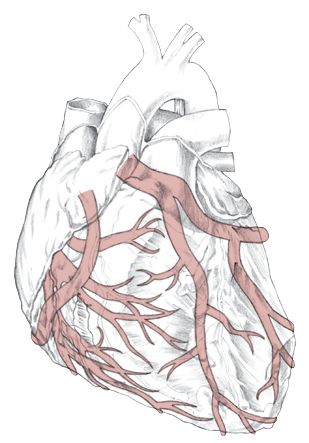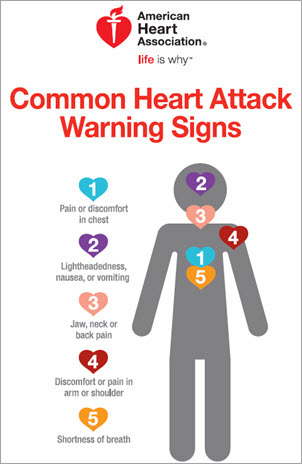Although heart attacks are thought to occur suddenly, heart disease does not.
Coronary artery disease, which is also called atherosclerosis, refers to the gradual buildup of fatty material (plaque) within the walls of the heart’s trio of coronary arteries, which causes them to be narrower than usual.

As a result, the blood flow of the heart is gradually reduced.
Sometimes, a clot can form on this plaque, or a bit of plaque can break off and block the coronary artery, resulting in a cardiac emergency. But sometimes the symptoms occur more gradually.

I’m a prime example of this. In 2002, I was returning from a speaking engagement when, at the airport, I felt a pain in my shoulder while pulling my suitcase.
The pain intensified, but at 48, I didn’t fit the profile of a person with heart disease. So I thought I was in the clear.
After I returned home, the pain seemed to go away. But it returned and got worse.
A few days later, when I headed out for my usual morning walk with my wife, I didn’t even make it to the end of the driveway before I had collapsed in pain.
By the time the medical team had me on the table, I was screaming in pain.
My left anterior descending artery (LAD) was blocked.
While it felt like I had experienced a sudden heart attack, there was actually nothing sudden about it. Remember, I had experienced the first symptoms — and ignored them — just a few days before.
Another reason that early warning signs of heart disease are so often missed, especially in people 65 or older, is that they are misinterpreted as simple signs of aging. People do slow down as they age, of course, but a lack of energy should not come on abruptly.
Any type of dramatic slowing down signals that you should see your doctor to get checked out.

